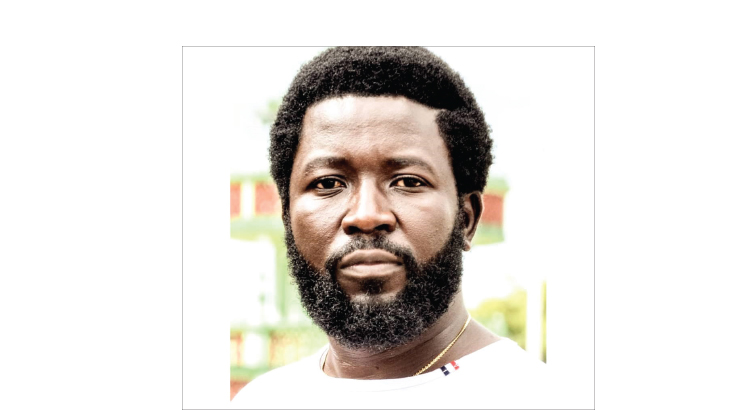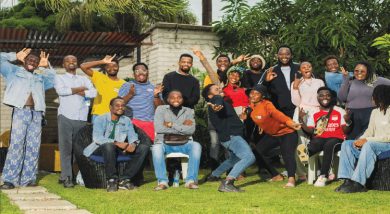Redefining Africa through history
May is Africa month which the African Union set aside for Africans to celebrate their culture, lifestyle and traditions and heritage. This year the month was commemorated under the theme of nutrition with emphasis on African local foods. EDITH GONDWE spoke to the executive director of Lost History Foundation Coilneth Selenje who gave an in-depth interview of African cuisines and its connection to African culture and its people.

Q
: Africa recently celebrated its day which focused on nutrition and food. As a historian, what’s your take on African cuisines? Is it nutritious enough without western elements?
A
: African cuisines define Africa and it’s undisputable that our unrivaled identity as the strongest, healthy and disease resistant race, the black race, is rooted in our natural diets which are passed on from generation to generation. We have stood the test of time and resisted pandemics which were perceived that they would wipe us out, for instance, the Covid-19 pandemic which compared to other continents, claimed less numbers of lives in Africa. The secret remains that Africa is a continent which is rich in foods growing in natural virgin soils with very wonderful mixtures and balance of nutrients. African nutrition stands out without Western elements because historically a true African consumes organic food grown on our rich soils. Africans who are strict with their diet are strong, have longer life expectation and this means the longer they live, the more they can contribute to nation building.
The secret is, our African diet.
Q
: Of late we have seen attempts to reclaim lifestyle and languages as Africans. Do you think it is achievable bearing in mind the level of Western influences?
A
: Reclaiming African lifestyles and languages can be phrased into one statement and that is reclaiming our lost identity. This is a battle which can be won by only those who are conscious of what they are. It is very easy to minimise Western influence on our African culture if we critically look at two big vehicles of cultural erosion and these are exotic religions and education. Exotic religion and Western styled education have twisted the minds of Africans placing them onto a mindset which wholly condemns our real identity in languages and style of spirituality. The degree of Western influence mainly on our beliefs and education should be critically analysed and it’s only after this when our culture shall come back to full life, it only needs mass critical thinking and reclamation of our past eroded knowledge in history.
Q
: What are some of the key historical cultural and traditions of Africa that we must always uphold?
A
: Languages, pattern of spirituality and education systems remain the key aspects to redefine Africa. Within a system of spirituality is embedded many human aspects which define a being, regulating and shaping daily life, placing a jurisdiction of dos and don’ts, shaping ones destiny and nature of perception of life. Africa had knowledge which has been the foundation of every aspect of life. Modern day religions and science have their roots in African cultural traditional practices and we only need to eradicate looking down upon ourselves and learn to rediscover what has been hidden and concealed.
Language is the vehicle through which we convey our culture from generation to generation. African languages carry African culture. English is incapable of carrying our culture forward and when we use it we carry the western culture forward and leave our own African culture on its death bed. Decolonisation of education is also a must. We need to teach in our schools more about African greatness and the contributions of black people to civilization.
Q
: As a continent have we done enough to spread our culture and traditions around the world? If not why?
A
: As a continent, we have not done enough to spread our culture. The reason is simple: we are still in survival mode. And in that mode what is important are food, clothing, shelter and safety. Basic survival. And that has forced us to be a funded people. And our funders take advantage of that. They tie the funding to spreading their culture. When you get a scholarship to study in Germany, for example, you need to learn German. Of necessity yes but entrenched in the necessity is a purpose of spreading German culture. Same with English or Chinese funding etc. In short poverty and the need for survival has forced us to sell our own identity so we can fit in societies which we think are better than ours. The same for religion. We traded our own religions so we could attend schools funded by imported religions. They do good work yes but we must always remember that it’s a tradeoff. We lose our religion so we can get a western education. So the first thing to do is to be independent economically and spiritually. And we have not done enough on these very important areas. Our governments need to actively look into these areas.
Q
: As Lost History Foundation what programmes do you have that are aimed at preserving the culture and traditions of Africa?
A
: As LHF we have many programmes aimed at the emancipation of the African mind and soul. We have projects celebrating our own African heroes so that our children can also know that there are many black people like them who have achieved great things starting from the ancient Kemet (Egyptian) period to the present. We have projects on music, art, politics, economics etc. We also have projects celebrating our own spirituality. We have projects where we are lobbying for system changes in education etc. We deliver these projects through classes, seminars, audio and video documentaries, literature and other forms of interventions. We basically champion open debate on these very important issues. We have projects on celebrating our art. For example, our children know more about Leonardo Da Vinci or Van Gogh than they do about our own great artists like Kay Chiromo, Innocent Wilinga etc.





